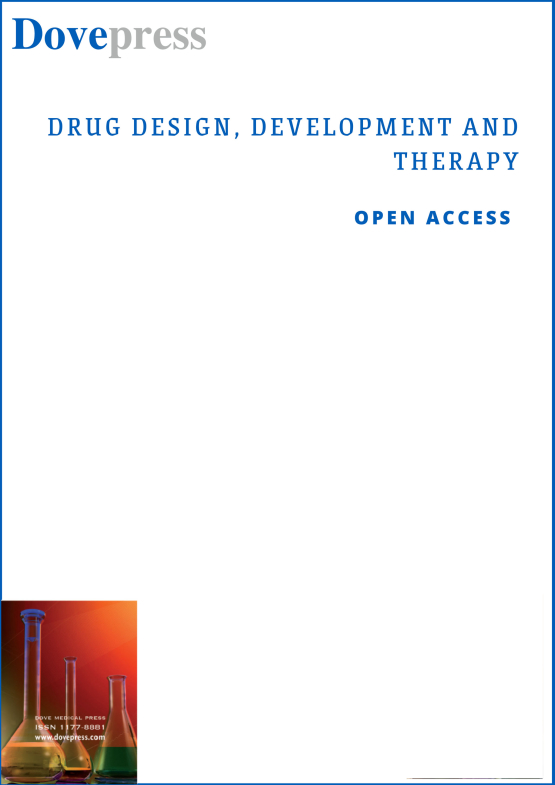Submit a Manuscript to the Journal
Drug Design, Development and Therapy
For an Article Collection on
New Trends in Formulations for Oral Inhalation
Manuscript deadline


Article collection guest advisor(s)
Prof. Eleonore Fröhlich,
Medical University of Graz
Eleonore.froehlich@medunigraz.at
Dr. Sarah Zellnitz-Neugebauer,
Research Center Pharmaceutical Engineering GmbH
Sarah.neugebauer@rcpe.at
New Trends in Formulations for Oral Inhalation
Dove Medical Press is pleased to invite you to submit your research to an upcoming Article Collection in Drug Design, Development and Therapy on "New Trends in Formulations for Oral Inhalation", organized by Prof. Eleonore Fröhlich (Medical University of Graz, Austria) and Dr. Sarah Zellnitz-Neugebauer (Research Center Pharmaceutical Engineering GmbH, Austria).
Inhalation is a promising, noninvasive method of delivering active pharmaceutical ingredients to the lungs. It can achieve high local and systemic concentrations in a short amount of time. However, oral inhalation poses problems as well. Formulating some drugs in high enough amounts, delivering large molecules as stable aerosols, and generating particles of the optimal size (1-5 µm) are challenges. Additionally, inconsistent absorption due to differences in patient anatomy and physiology can lead to less predictable topical and systemic drug levels. The potential of systemic treatment by oral inhalation has not been fully realized. The thin air-blood barrier poses a risk of lung damage, and biocompatibility may be an issue.
The prevalence of chronic pulmonary diseases is increasing worldwide due to an aging population, delayed diagnosis, and air pollution. The prevalence of communicable pulmonary diseases remains a significant global health challenge. The incidence of tuberculosis has peaked due to the outbreak of the novel coronavirus, and pneumonia continues to cause high mortality rates. Engineered dry powders, co-formulations, improved targeting methods (e.g., mucoadhesion), innovative carrier systems (e.g., exosomes), and new therapeutic agents (e.g., biologics) offer opportunities for improved pulmonary treatment. It is also important to understand which anatomical or physiological patient properties may influence drug efficacy and toxicity.
This Collection is interested in tools that may improve the success of orally inhaled formulations in clinics, including new drug particles, targeted delivery approaches, fixed dose combinations, and innovative carriers or drug delivery techniques. This also includes in silico tools that can identify promising drug formulations or predict efficacy and toxicity in patients. Additionally, studies that can explain interpatient differences in pulmonary formulations, and any methods that increase the efficiency of pulmonary delivery are welcome. Further, there is room for a more precise assessment of the biocompatibility and long-term effects of pulmonary formulations.
Please submit your manuscript on our website, using the promo code 0EB1F to indicate that your manuscript will be considered for this Collection. We will be welcoming relevant papers up until the 31st of May 2026. Please review the journal’s aims and scope and author submission instructions prior to submitting a manuscript.
Please contact Haoyang Yi (Commissioning Editor) at haoyang.yi@taylorandfrancis.com with any queries regarding this Article Collection.
Guest advisors
Prof. Eleonore Fröhlich, Medical University of Graz
Eleonore.froehlich@medunigraz.at
Eleonore Fröhlich is a biochemist and medical doctor with specialization in anatomy, histology, and embryology. She is affiliated with the Medical University of Graz (Director of the Core Facility Imaging, 2007–2024), the Eberhard-Karls University Tübingen (Extraordinary Professor since 2007), and the Research Center Pharmaceutical Engineering (Key Researcher since 2013). Her research activities started with studies on the retina, skin cancer, and thyroid disease at the University of Tübingen. Since the 2010s, her research has focused on the toxicological effects of nano- and microparticles, particularly those inhaled, at the Center for Medical Research in Graz.
Dr. Sarah Zellnitz-Neugebauer, Research Center Pharmaceutical Engineering GmbH
Sarah Zellnitz-Neugebauer is a pharmacist by training. During her PhD at the Graz Technical University (AT) she focused on glass beads as new model carries in dry powder inhalers (DPIs) and gained expertise in particle engineering via surface modification and detailed material characterization. She currently holds the position of Senior Scientist at the Research Center Pharmaceutical Engineering (RCPE) in Graz (AT). Meanwhile, her work centers on tailoring DPI formulations via mechanistic understanding of the interplay of material properties, formulation properties, adhesive-cohesive force balance and drug detachment. Recently, she also took up the field of co-processing of API combinations for inhalation therapy.
Benefits of publishing open access within Taylor & Francis
Global marketing and publicity, ensuring your research reaches the people you want it to.
Article Collections bring together the latest research on hot topics from influential researchers across the globe.
Rigorous peer review for every open access article.
Rapid online publication allowing you to share your work quickly.
Submission Instructions
All manuscripts submitted to this Article Collection will undergo desk assessment and peer-review as part of our standard editorial process. Guest Advisors for this collection will not be involved in peer-reviewing manuscripts unless they are an existing member of the Editorial Board. Please review the journal Aims and Scope and author submission instructions prior to submitting a manuscript.
